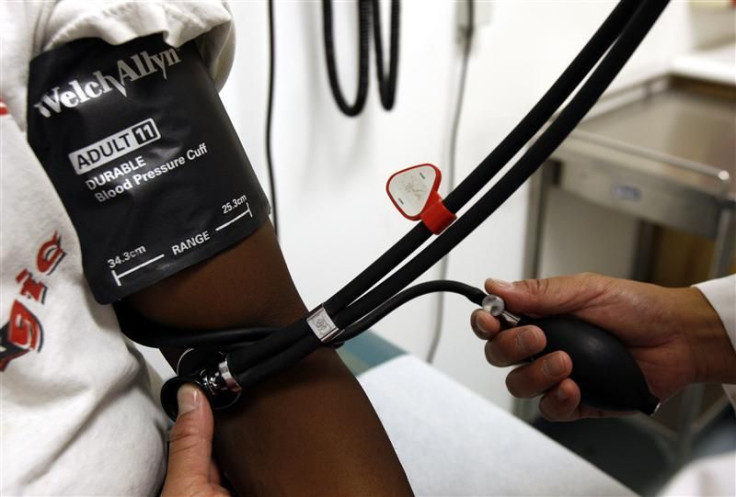Previously Undiscovered Brain Cells May Be Culprit for High Blood Pressure

High blood pressure is caused by a variety of problems: poor nutrition, smoking and stress, just for starters. However, a recent study conducted by researchers from the Karolinska Institutet, the Alan Turing Institute Almere and the Universitätsklinikum Heidelberg in Sweden, the Netherlands and Germany, respectively, has found that there may also be another overlooked culprit at work: a previously undiscovered cluster of brain cells.
The cells were located in mice brains in the hypothalamus, the region of the brain that controls involuntary body functions, like thirst. According to LiveScience, these cells are part of a family of nerves known as the parvalbumergic neurons. These cells were noted to have effect on hypertension when they mutated mice's thyroid receptors, which caused their hearts to respond improperly to stressful stimuli. When researchers Jens Mittag and his team looked at the hypothalamus, they found that the brain lacked a significant portion of these parvalbumergic neurons.
Their suspicion about the link between hypertension and these neurons were confirmed when they conducted a second experiment. In this one, they destroyed the neurons in mice with a virus. These mutated mice then suffered from a variety of heart problems, including hypertension and issues with their heart rate if their environmental temperature changed.
Researchers believe that the thyroid hormone is responsible for creating these special neurons. Indeed, the thyroid has been linked to issues in heart activity in humans and, in mice mutated to have thyroid problems, the parvalbumergic neurons were never properly formed during embryonic development.
Scientists next need to uncover if the same cells exist in human brains. If they do, these brain cells may serve as a pharmaceutical target in the fight against hypertension. Meanwhile, researchers advise pregnant women to make sure that they produce enough of the thyroid hormone. The National Library of Medicine notes that pregnant women may suffer from hypothyroidism, or an underactive thyroid, during early pregnancy and after childbirth, even if they never have before. If untreated, it can cause multiple problems for the baby, not just hypertension.
The study was published in the Journal of Clinical Investigation.
Published by Medicaldaily.com



























